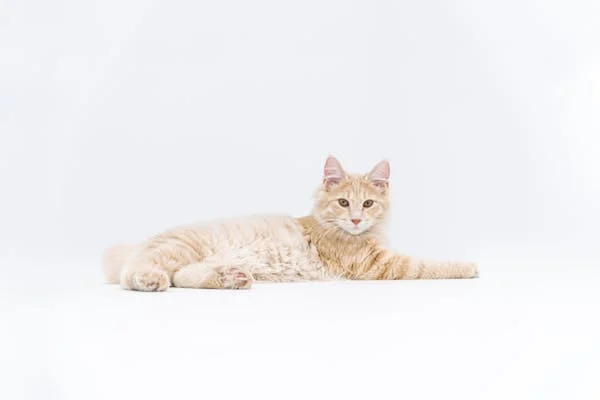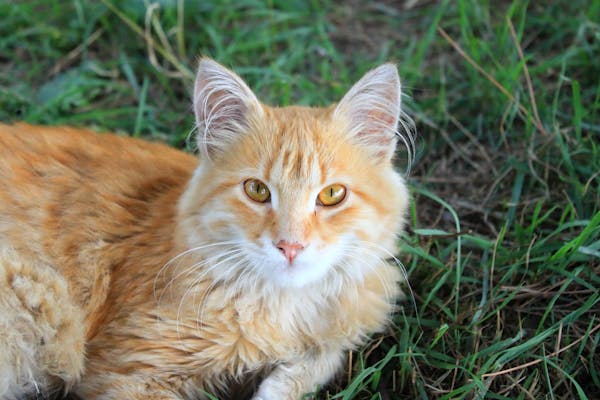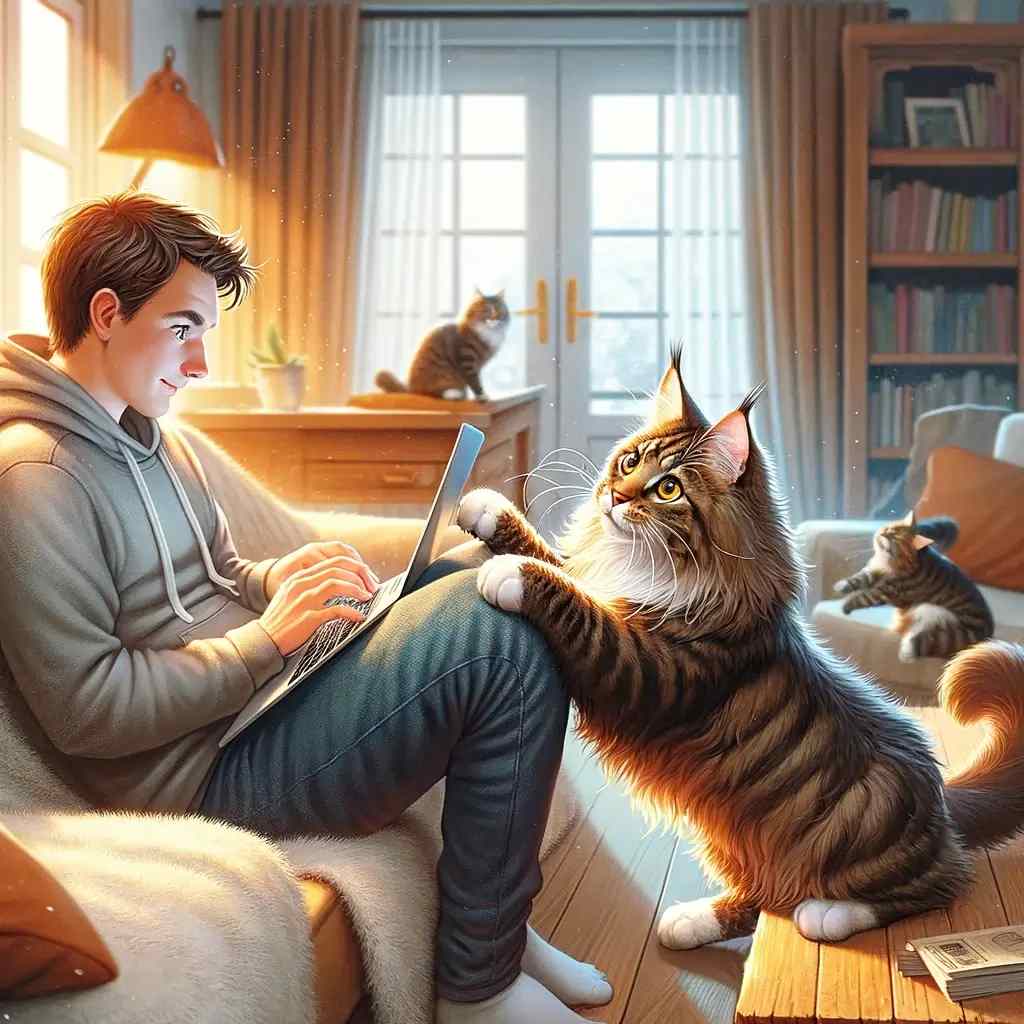In this section, we will explore the reasons behind your Maine Coon cat’s neediness and discuss how you can nurture their social needs. Maine Coons are known for being affectionate, but understanding why they may become clingy or needy is important for their well-being.
Understanding Maine Coon’s Social Nature
Maine Coons are known for their highly social and affectionate nature. They enjoy spending time with their owners and thrive on social interaction. It’s not uncommon for Maine Coons to be clingy and crave constant attention and affection from their human companions. This neediness is a characteristic of the breed and should be understood and appreciated.
When you have a Maine Coon, be prepared for a cat that loves to be around you all the time. They may follow you from room to room, demanding your attention and seeking constant companionship. Their desire for social interaction is a natural instinct and is deeply ingrained in the breed’s history.
These friendly felines genuinely enjoy the company of their owners and form strong bonds with them. They will often show their love and affection by rubbing against your legs, purring loudly, and even curling up on your lap. Maine Coons have a reputation for being exceptionally loving and cuddly, making them perfect companions for those seeking a feline friend who craves human company.
So why are Maine Coons so social?
Maine Coons have a rich history as working cats on farms and ships, where they lived and worked alongside humans for centuries. This close proximity to people has shaped their social nature and their need for companionship. In addition, Maine Coons are intelligent animals that thrive on mental stimulation, and human interaction provides exactly that.
Their social intelligence allows them to understand and respond to human emotions, making them fantastic emotional support animals. Maine Coons can provide comfort and companionship to their owners, sensing when they need a friendly presence or a listening ear.
Overall, understanding and embracing your Maine Coon’s sociable nature is key to creating a strong bond with them. By providing them with the social interaction they crave and meeting their need for constant companionship, you’ll have a content and happy Maine Coon as your beloved companion.
Possible Reasons for Needy Behavior
There are various reasons why a Maine Coon may become extra clingy or needy. From separation anxiety to boredom, different factors can trigger this behavior in your beloved feline friend.
Maine Coons may meow excessively, paw at you, or trill in an effort to keep you entertained or demand your attention. These vocalizations and actions are often their way of expressing their need for interaction and companionship.
Changes in their environment can also contribute to clingy behavior. The introduction of a new pet or being left alone for extended periods can make your Maine Coon feel unsettled, prompting them to seek more attention from you.

| Reasons | Behavior Exhibited |
|---|---|
| Separation Anxiety | Excessive meowing, pawing, trilling in your absence |
| Boredom | Meowing, demanding your attention, getting into mischief |
| Health issue | Changes in behavior, seeking comfort, meowing |
| Introduction of a new pet | Increased clinginess, attention-seeking behavior |
| Being left alone | Excessive meowing, pawing at you, following you around |
Understanding the possible reasons behind your Maine Coon’s needy behavior is essential in finding the best approach to address their needs and ensure their well-being.
Meeting Your Maine Coon’s Social Needs
To address your Maine Coon’s social needs, it’s essential to provide them with adequate playtime and mental stimulation. Regular play sessions are crucial for their overall well-being. Engaging them with interactive toys, puzzle toys, and activities that mimic hunting can keep them entertained and prevent boredom. Consulting with a veterinarian can also help determine if there’s an underlying medical issue causing their clingy behavior.
Creating a Stimulating Environment
In addition to playtime, providing a stimulating environment is crucial for the well-being of your Maine Coon. These social and active cats thrive when they have the opportunity to explore and engage their senses. Here are some ways to create an environment that keeps your Maine Coon on their toes:
Room to Room Access
Maine Coons enjoy having the freedom to roam from room to room. Consider allowing them access to different areas of your home, as it encourages exploration and satisfies their natural curiosity.
Motorized Toys
Keeping your Maine Coon entertained with motorized toys can provide mental and physical stimulation. Toys that move unpredictably mimic the thrill of hunting, keeping your cat engaged and active.
Tall Cat Tree
A tall cat tree provides your Maine Coon with an elevated perch and a place to exercise their climbing instincts. It also offers a vantage point for observing their surroundings, satisfying their natural curiosity.
Mental Stimulation
Engage your Maine Coon’s mind with puzzle toys and interactive games. These activities not only provide mental stimulation but also prevent boredom and help keep your cat’s brain sharp.

Cat Grass
Offering cat grass gives your Maine Coon a taste of the outdoors indoors. Not only does it provide them with a safe, natural snack, but it also satisfies their instinctual urge to chew on grass.
Harness and Leash
Consider taking your Maine Coon for short walks using a harness and leash. Many Maine Coons enjoy exploring the outdoors and experiencing new sights and smells. It can be a great opportunity to provide them with mental stimulation and keep them physically active.
Creating a stimulating environment for your Maine Coon not only enriches their life but also helps prevent behavioral issues caused by boredom. By incorporating these elements into their daily routine, you can provide the mental and physical stimulation they need to thrive.
Conclusion
In conclusion, Maine Coons are known for their affectionate and social nature, which can sometimes manifest as clingy or needy behavior. As a cat owner, it is essential to understand the unique needs of your Maine Coon and provide them with the care they require to thrive.
Keeping your Maine Coon’s routine in mind, ensuring they receive enough attention and playtime every day is crucial. These affectionate cats thrive on companionship and enjoy being around their owners for extended periods of time.
To prevent your Maine Coon from becoming excessively clingy, it is important to provide them with a variety of toys and activities. Engaging playtime sessions, incorporating interactive toys and puzzles, can keep them entertained and mentally stimulated. Additionally, allowing them the freedom to exercise their natural abilities by jumping onto elevated surfaces can help fulfill their need for physical and mental stimulation.
Remember that a Maine Coon may exhibit destructive behavior or meow excessively if they are not getting enough playtime or attention. By addressing their social needs, you can create a harmonious environment and develop a strong bond with your cuddly feline companion. With proper care and nurturing, your Maine Coon will flourish into a content and happy member of your family.
Q: Why is my Maine Coon so clingy?
A: Maine Coons are known for their clingy behavior because they are a social breed that loves attention and companionship.
Q: How much attention does a Maine Coon cat need?
A: Maine Coons need a lot of attention as they enjoy being around their owners and may follow you around the house.
Q: Why does my Maine Coon follow me everywhere?
A: Maine Coons love their owners and tend to follow them around as they enjoy being part of your daily activities.
Q: Should I play with my Maine Coon every day?
A: It’s recommended to play with your Maine Coon for at least 30 minutes to an hour daily to keep them stimulated and happy.
Q: What toys are best for Maine Coon cats?
A: Maine Coons enjoy interactive toys that keep them on their toes, such as puzzle feeders, laser pointers, and feather toys.
Q: Is it normal for Maine Coons to be underfoot?
A: Yes, Maine Coons like to be involved in your daily activities and may want to be near you at all times, even underfoot.
